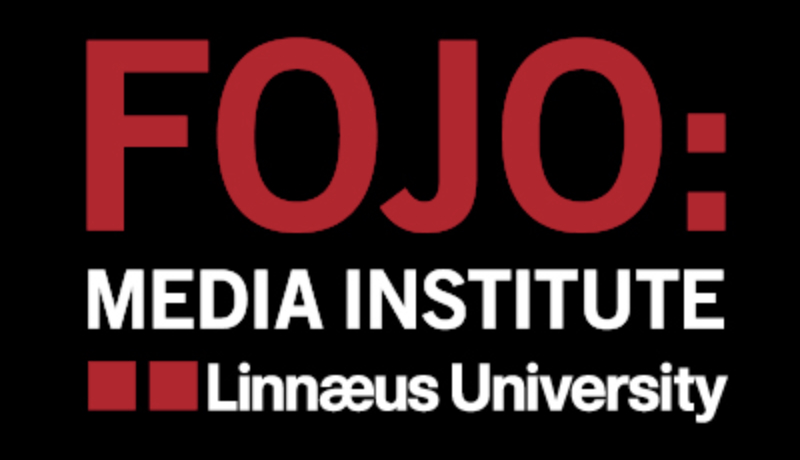
Media Helping Media is hosted by the Fojo Media Institute and is one of its official training resources.
From our BASIC JOURNALISM section
News writing for beginners
A journalist writing a news story is the author, organiser and decision maker. Without them the story may never be told. They make the most important decision of all by asking the question - is there a story?
Keeping the sub-editors happy
A sub-editor is happiest when given copy that reads well and needs little rewriting. A writer or reporter is happiest when their copy is printed with the fewest changes to their original.
From our EDITORIAL ETHICS section
Impartiality in journalism
Being impartial means not being prejudiced towards or against any particular side. All journalists have their own views, however they must learn to leave aside their own personal perspectives.
Unconscious bias and its impact on journalism
Journalists must not allow their own personal or political views to influence their pursuit of the truth. They need to remain objective and impartial, while also being aware of the dangers that unconscious biases can cause.
From our ADVANCED JOURNALISM section
Editorial independence during election coverage
Journalists, broadcasters and publishers have a responsibility towards the society as a whole. That means that journalists operate on the edges of the market and democracy.
Snacking on rumour, feeding on facts
The good news for mainstream media is that the social networking audience still wants facts, but those producing the facts need to rethink how they create and disseminate those facts.
 Unfortunately, Facebook has decided to disable our Media Helping Media Facebook group. Our Facebook page is still live.
Unfortunately, Facebook has decided to disable our Media Helping Media Facebook group. Our Facebook page is still live.
 Do you have any wisdom to share with those without access to formal training? If so please get in touch.
Do you have any wisdom to share with those without access to formal training? If so please get in touch.
 Media Helping Media (MHM) provides free training resources for those starting off in journalism. Read more …
Media Helping Media (MHM) provides free training resources for those starting off in journalism. Read more …
 The content on Media Helping Media (MHM) is released via Creative Commons BY NC SA 4.0. Please read the MHM copyright terms.
The content on Media Helping Media (MHM) is released via Creative Commons BY NC SA 4.0. Please read the MHM copyright terms.
20 ways a suspect can help a journalist
Sources are one of the most valuable resources for a journalist. Without sourced information, the reports produced may end up being padded with rumour and personal opinion.
Why would anyone want to talk to a journalist?
There may be many reasons why someone will agree to open up to a reporter, and some will be beyond their control. It's worth taking time to try to figure out the motives before interviewing them.
Tips for investigative journalism
The following are some of the points from a training session given by Marcus Tanner to the Balkan Fellowship for Journalistic Excellence setting out how to produce a piece of investigative journalism.
Story development, ensuring all angles are covered
Asking the questions that need to be asked
In a previous module we looked at the topic of proactive journalism, where journalists are encouraged to...
Story weighting system for breaking news
Introducing a story weighting system helps prioritises effort on the stories that are of most value to the target audience, it saves time, speeds up production, and helps avoid wasted effort.
Convergence, workflows, roles and responsibilities
A converged newsroom operates like a content factory, responsible for all intake, production and output. It gathers and processes raw material, creates different products, and delivered them to the target audience.
The skills and techniques of media project management
What is needed to manage a successful media project from start to finish. The second training module in our series on project management.
Strategic forward planning for media organisations
This module looks at how media organisations need to plan ahead to produce original content that informs the public debate and covers the issues of most concern to the target audience.
Newspaper audience research Q & A
Audience research is essential if a newspaper is to remain relevant and generate revenue, but some publishers fail to gather adequate audience feedback. Here are some issues newspaper publishers should consider.
Photo journalism – scenario
Scenario: You arrive at a border crossing and see a child sitting by the roadside crying. You think it's been abandoned and take a picture. You alert the newsdesk. But it transpires it's just lost its mother and stops crying when the mother arrives. What should you do?
Privacy protection – scenario
You are working on the online news desk of a large media organisation. News breaks of fighting overseas. Raw footage arrives showing identifiable dead bodies. What do you do?
Returning ‘favours’ – scenario
In this scenario you are a parliamentary reporter being put under pressure to cover a story by a politician who says they did you a favour in the past.
Wanted, your media know-how
Are you a journalist, media manager or media trainer with some tips to share for the benefit of others? If so, please consider submitting a training module to Media Helping Media.
Maximising the impact of media training
Thorough research is the essential if you are to deliver high-impact media training. Never accept a brief from media managers without question - they could be wrong and often are.
Basic rules for delivering training
One of the first steps in delivering training is to articulate the ground rules. Participants need to know what to expect, what is expected of them and how you intend to schedule course elements.




